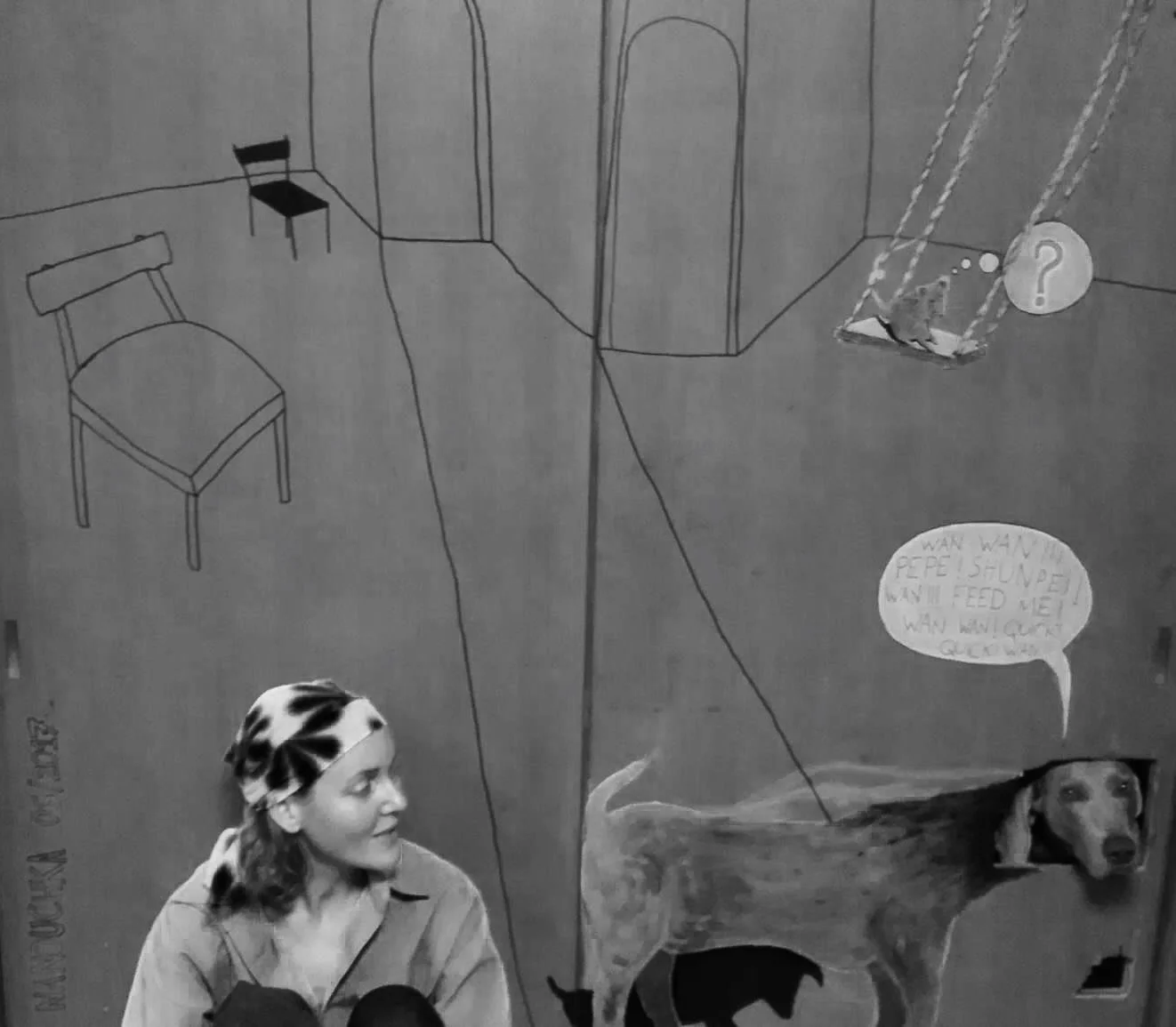
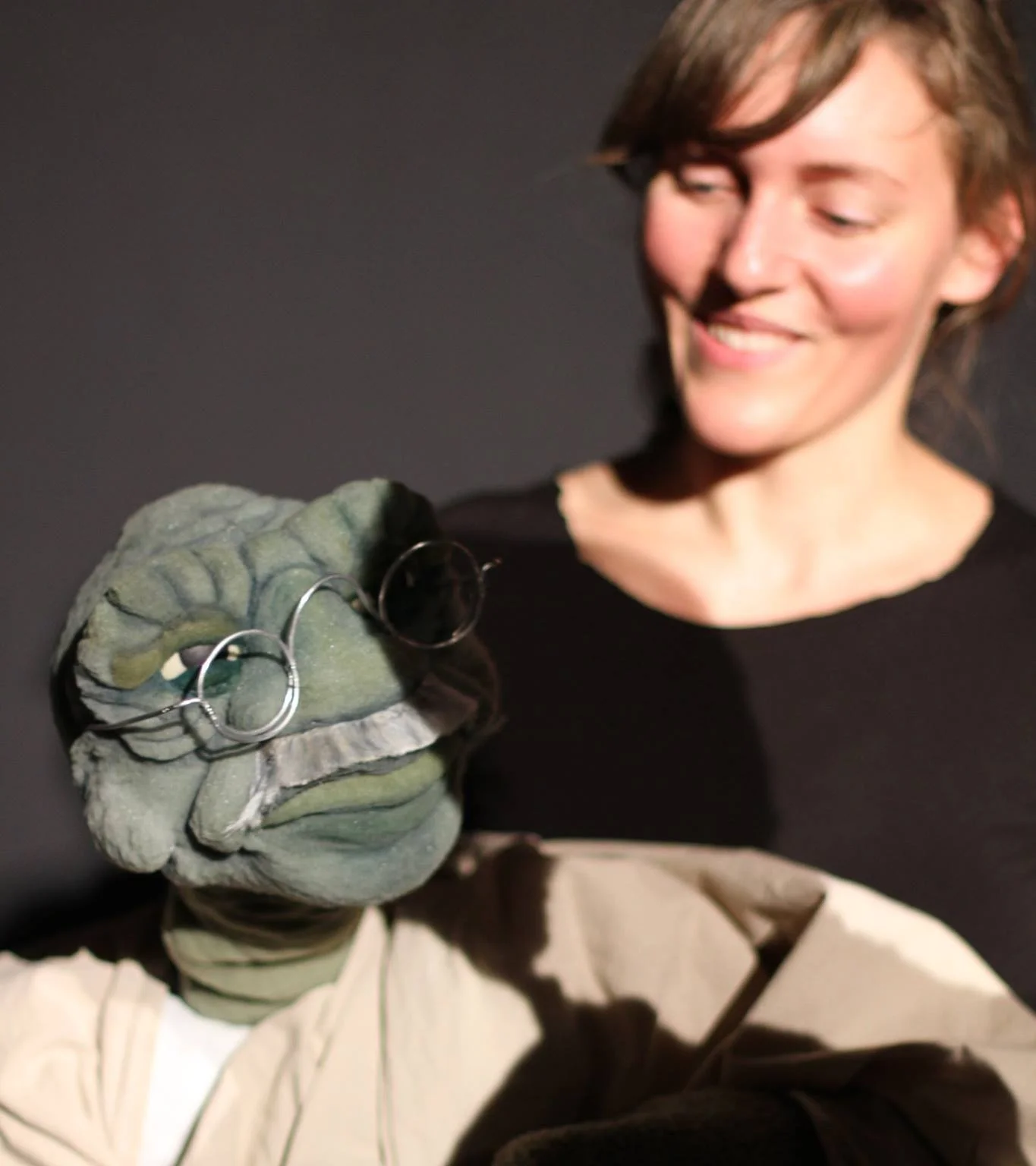
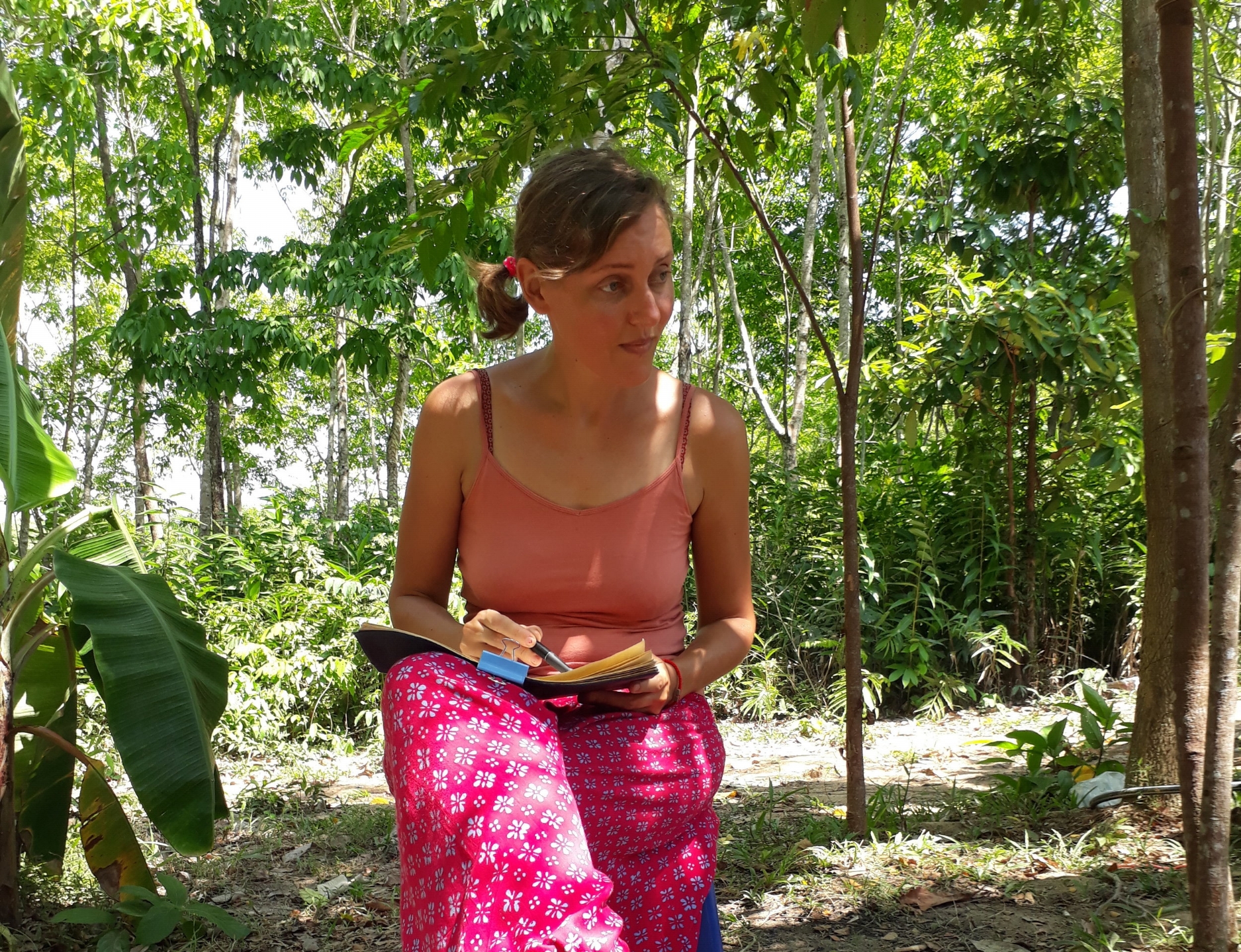
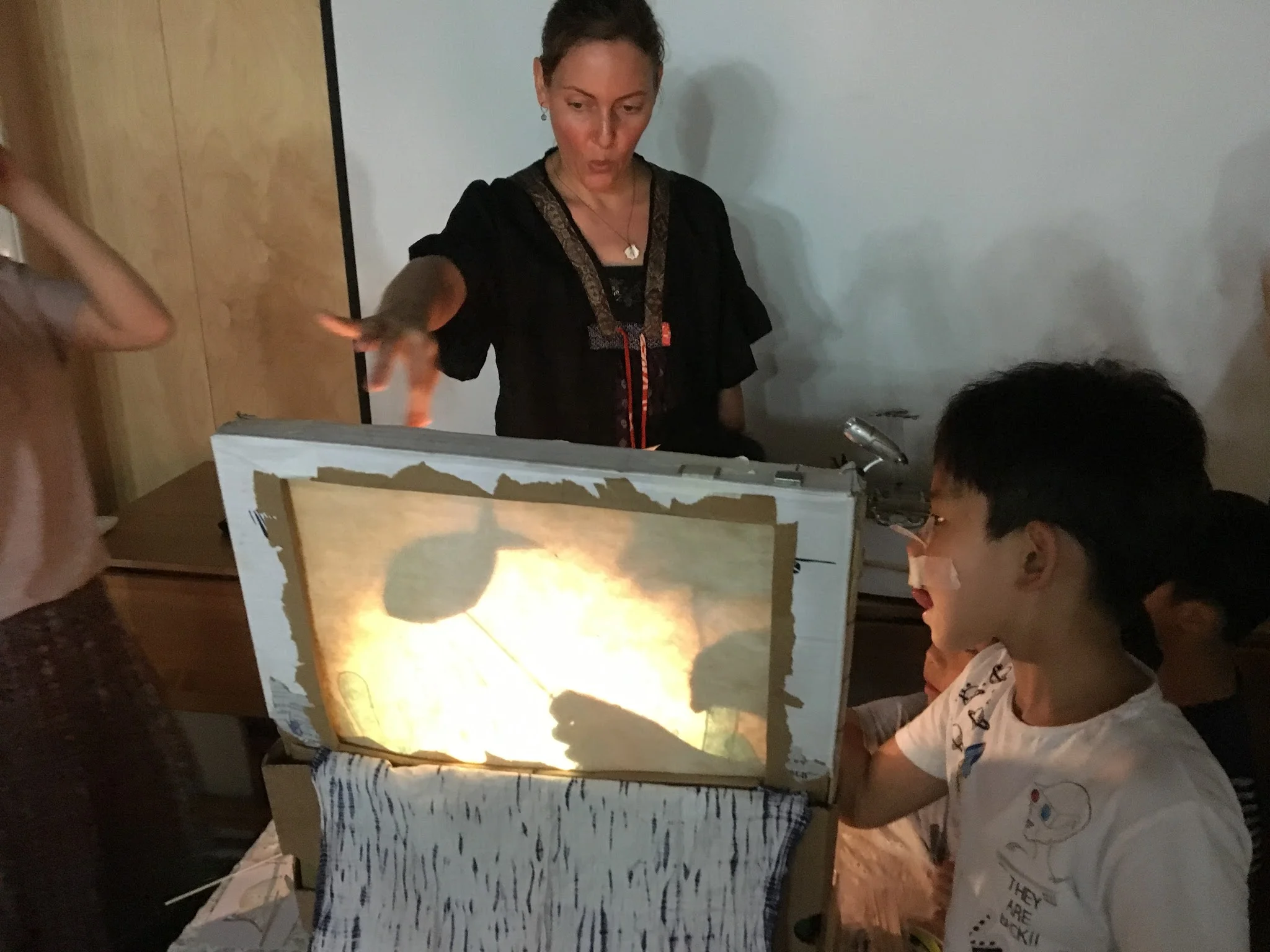
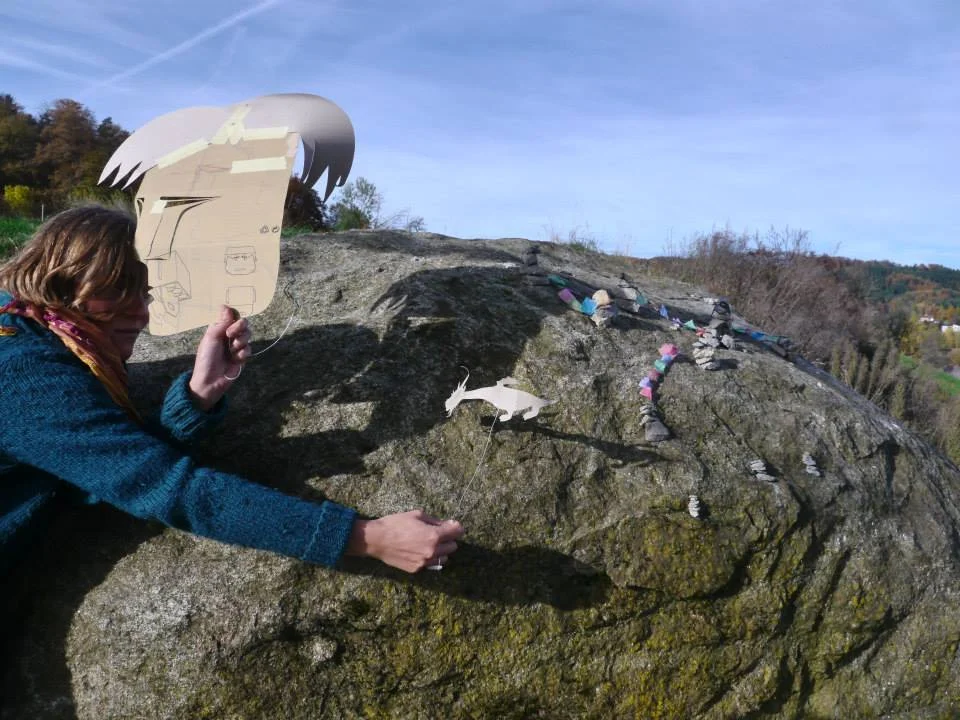
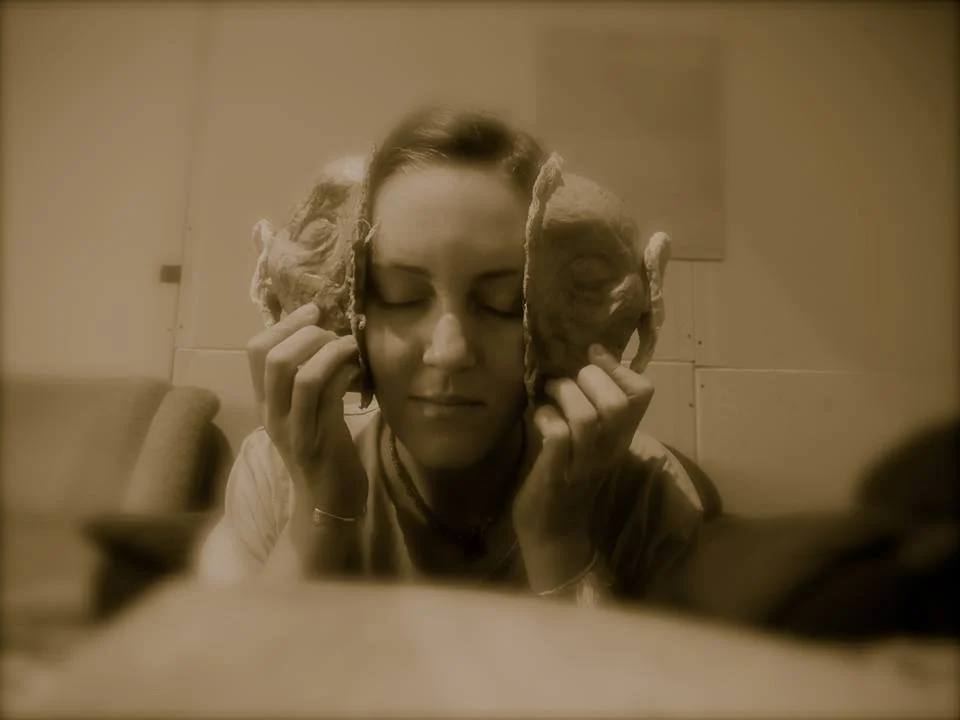
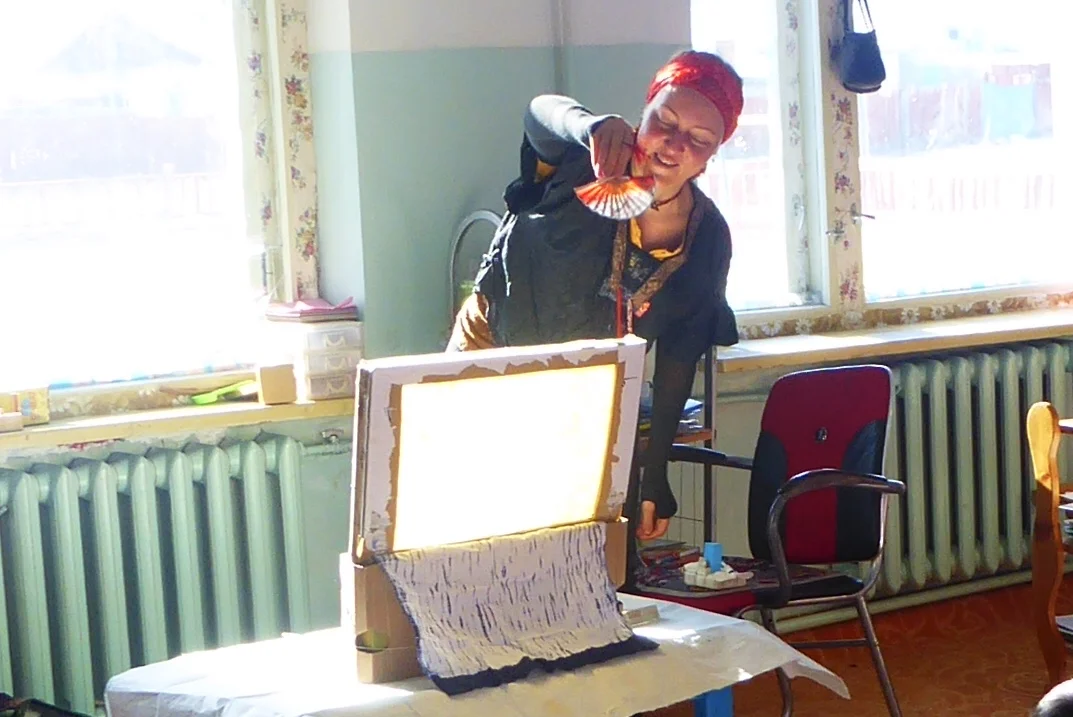
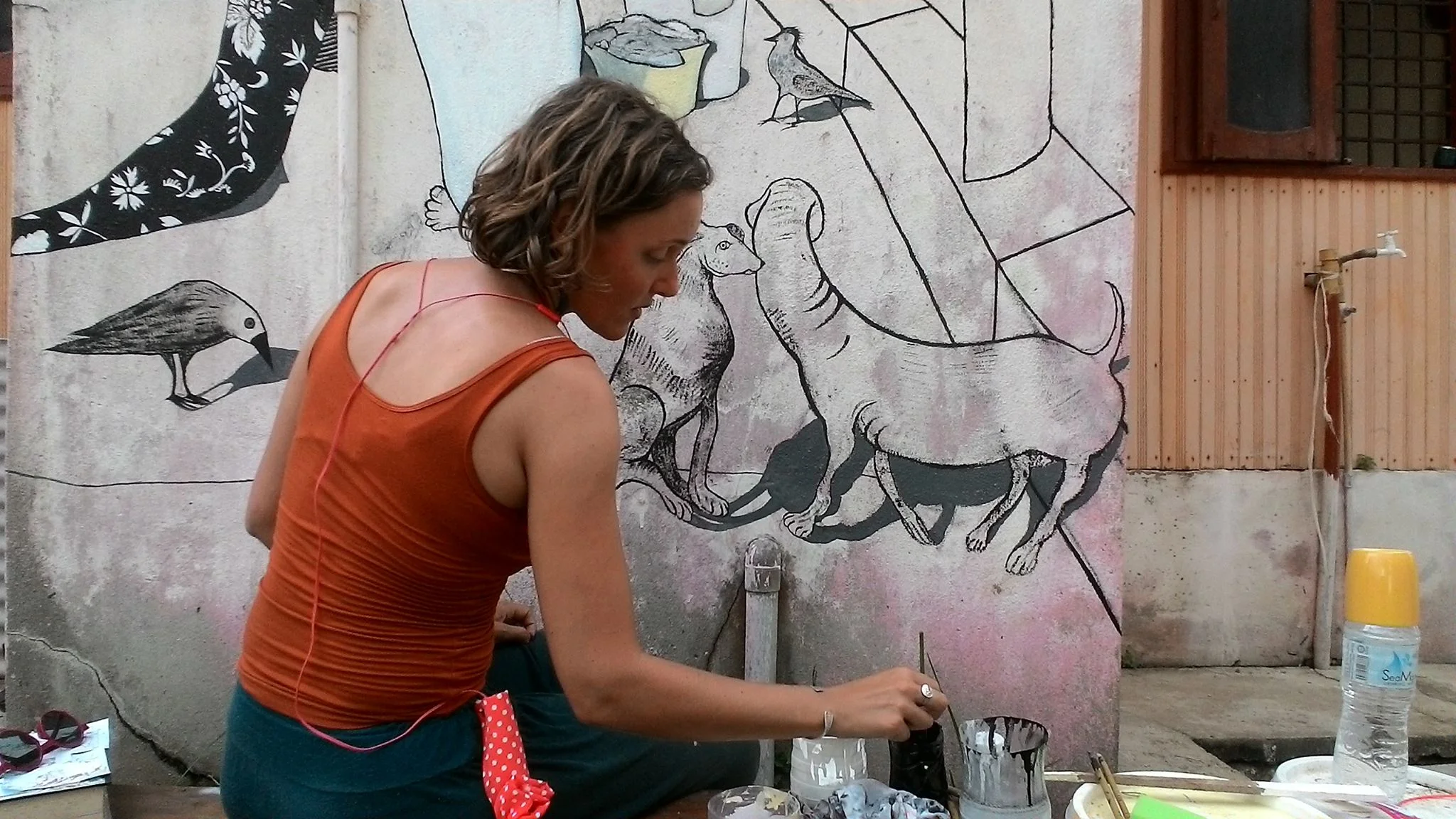
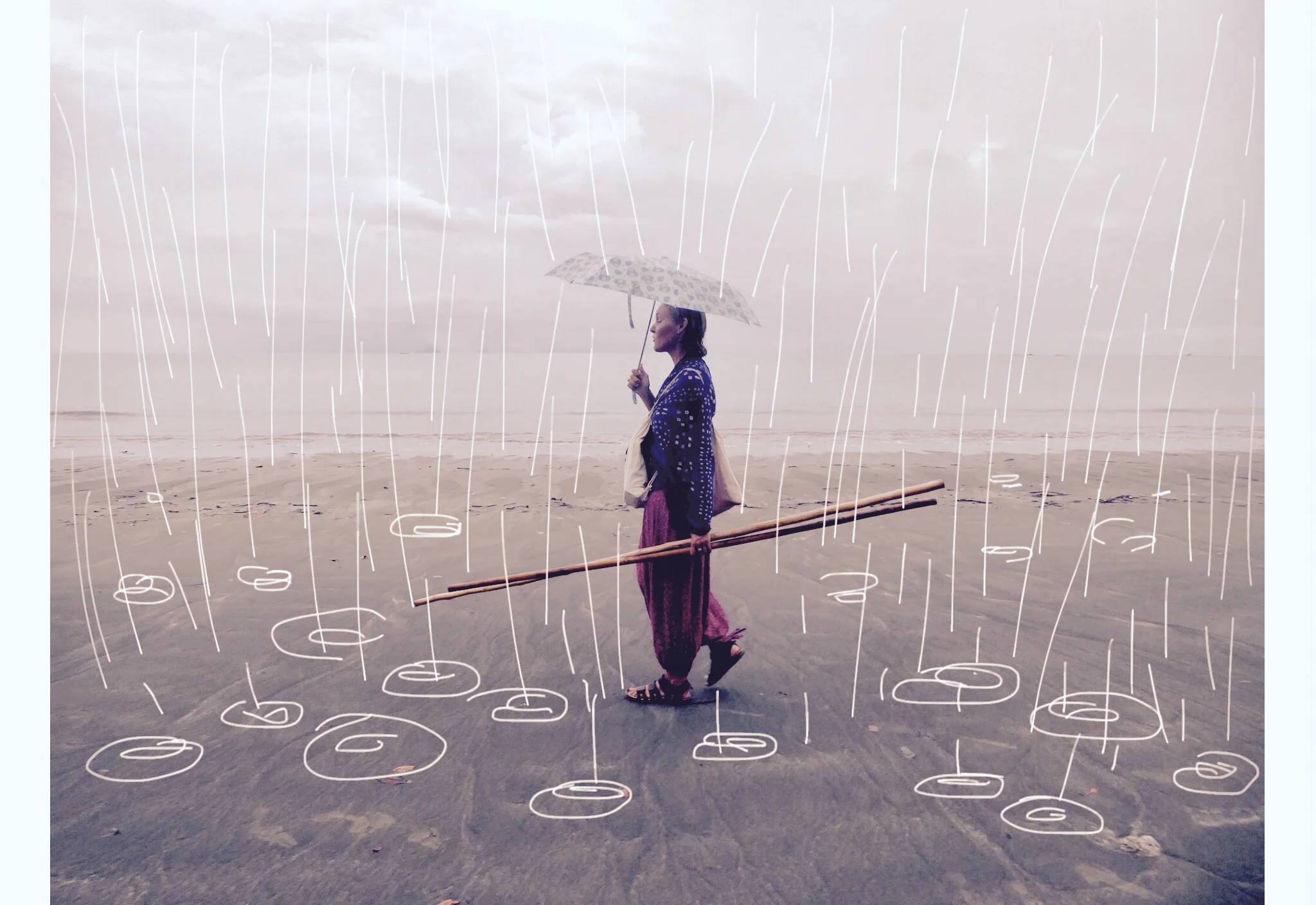
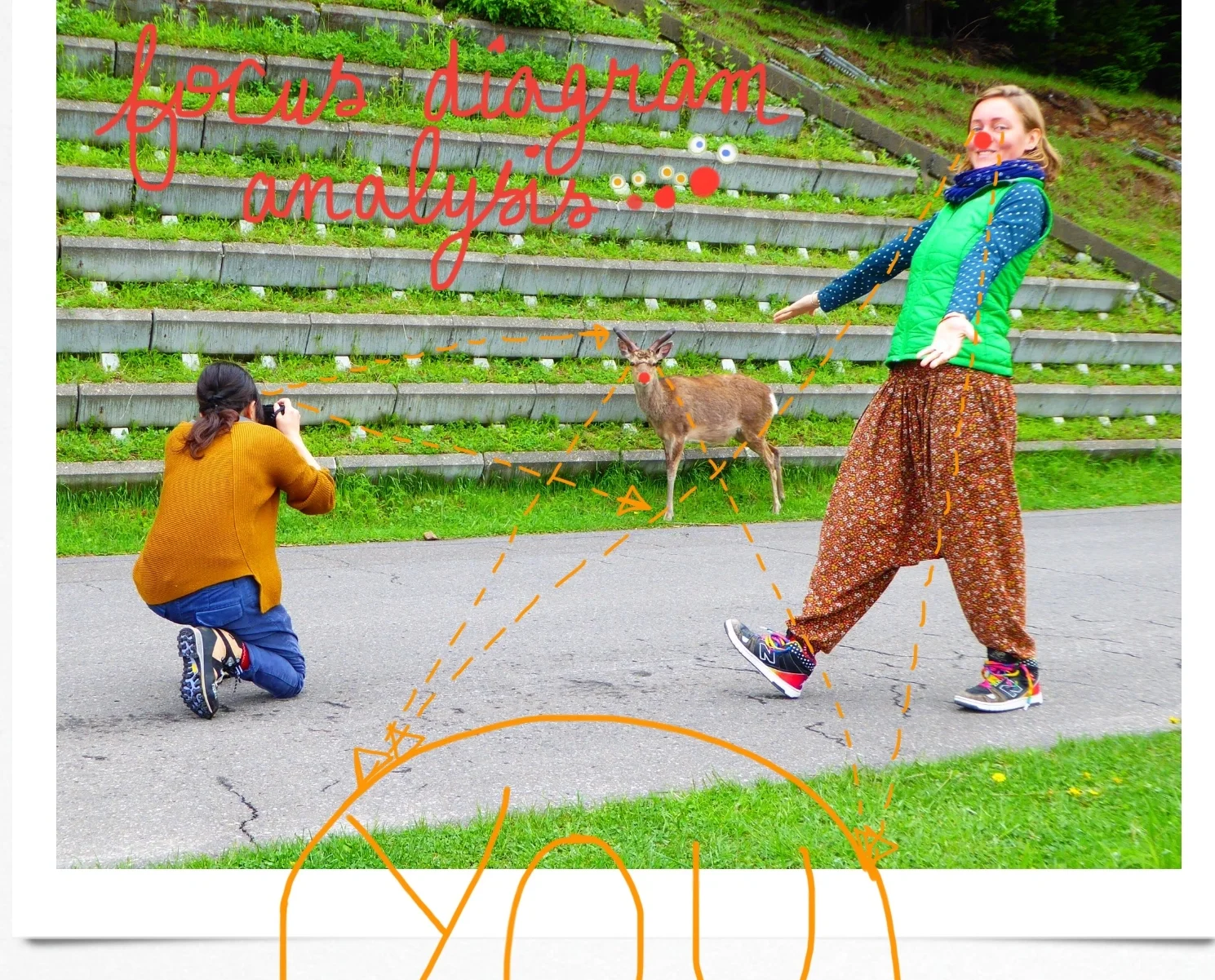
About me
Visual & performance artist. Puppeteer. Storyteller. Lanternist. Dreamer & traveller.
Nanouche Oriano is a French-born artist and dreamer, although she considers herself more of a citizen of the World due to her mixed European origins, as well as a whole lifetime moving around various countries, with the first few years of her life spent in Senegal, which left a deep imprint on her path.
She specialises in anything that moves, via such media as puppetry, the moving image, multi-disciplinary, site-specific, and visual arts, travel sketchbooks, and she also occasionally takes part in community and participatory events.
Before the hit of the coronavirus, she had been on an extensive and slow-paced Asian tour, as part of her countless World travels, seeking adventure, personal healing, mural painting/drawing/creating/performing along the way, and researching various folk cultures and traditional puppets/dances/arts/crafts/philosophies, as well as contemporary performance practices.
Her other interests and investigations span from traditional medicines, creative and wholesome vegan/vegetarian cooking, Tai Chi, Feldenkrais, mime, dance, free diving, etc to wildlife, environmentalism, permaculture, upcycling…
During her journeys, for example in Africa, the Middle-East, Italy, the US, Mongolia, India, Japan, South East Asia..., she has met people and interacted with different realities, landscapes, worldviews, social and cultural structures : these have fed her stories and fired her imagination. So in return, she is eager to share this wealth with others, primarily through the story-telling media of evocative puppet performance and drawing from observation/impressions. She can never cease to wonder at the magical bond that unites people (adults and children alike) to puppets and at the affinities puppets create between otherwise different people, through the shared experience of joy (or other emotions), wonder and empathy, giving them an opportunity to escape into a different dimension, for a few precious moments.
Nanouche doesn’t quite see what the World could do without puppets, because they are as ancient as humanity itself! They can be entertaining, or moving, or they can be mirrors of our deepest selves. Whether on the street at its most democratic, or inside the safe cocoon of a more intimate space, their simple existence and various ways of practice can be both healing and civic : puppets become indispensable as they channel the spread of ideas and poetry, or witness, reflect and process the complexities of our environments, or even help us challenge the absurd blackmail of consumerism, dehumanisation or war. In many ways, they can be an enduring yet subtle and forever-developing structure for the preservation of peace and harmony.